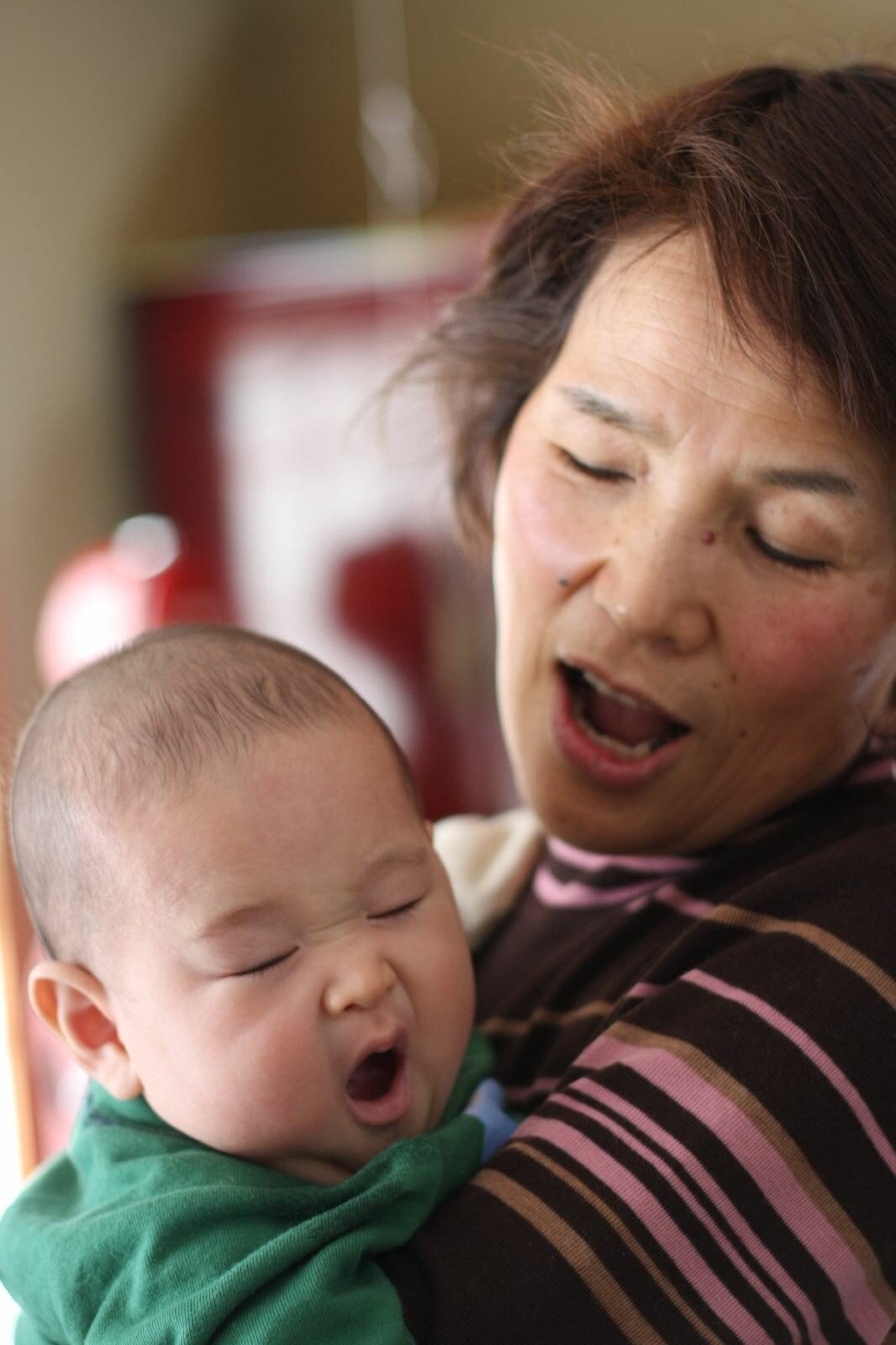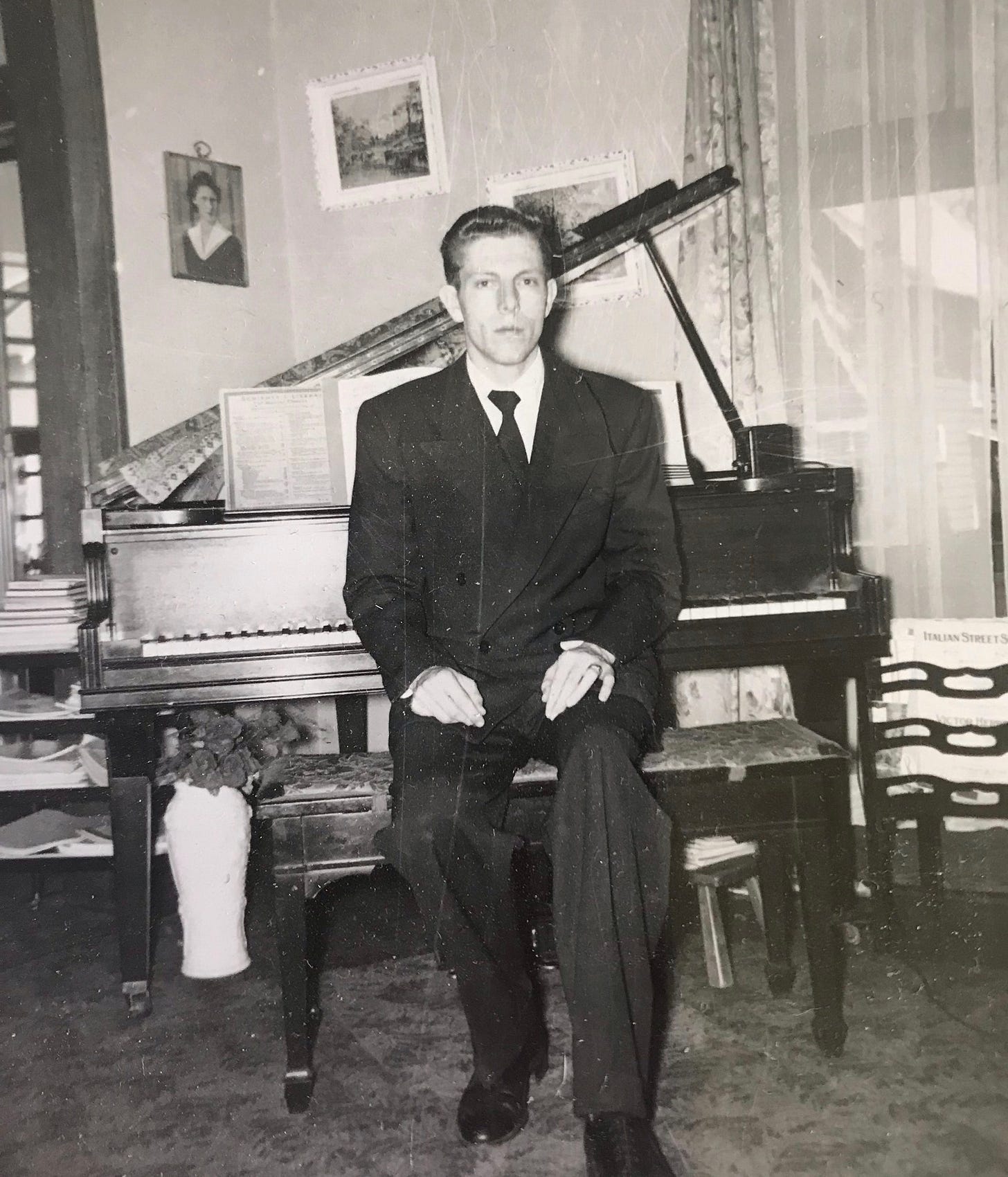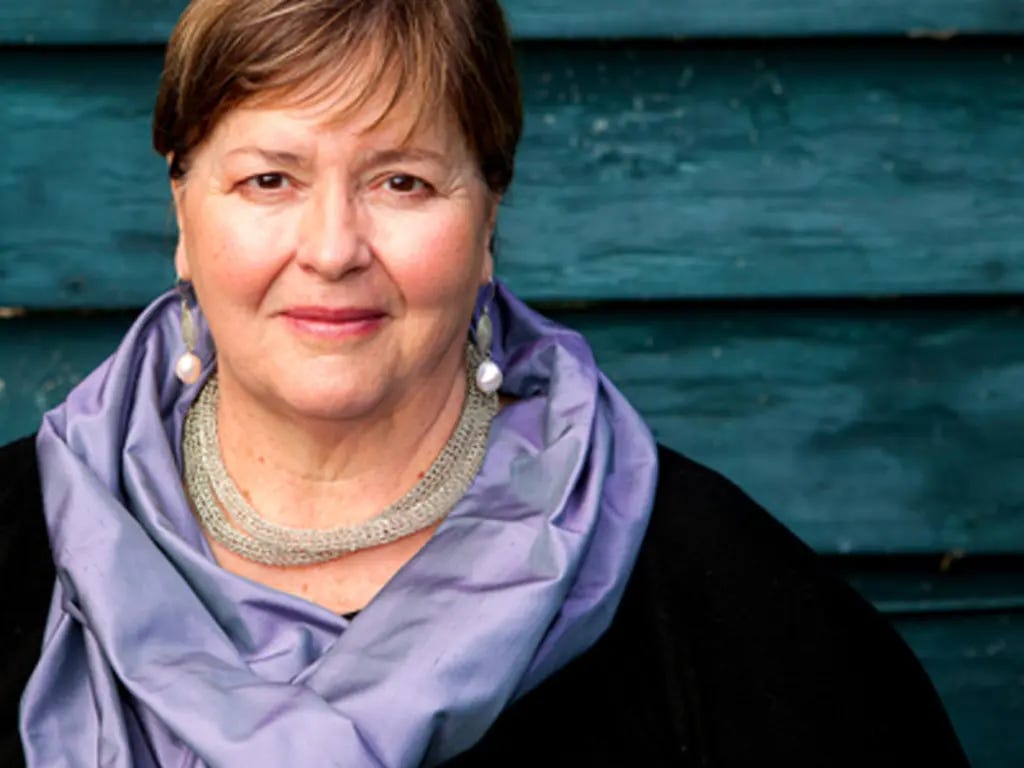Finding My Voice
remembering a pivotal music memory
Welcome to The Practice of Life — a place to slow down, befriend yourself, and connect with the world from kindness and awareness.
Everything here is freely offered without paywalls. If you appreciate what you find here, please consider a paid subscription or a one-time donation. Your financial support creates possibilities for me to spend more time on my writing, including a memoir-in-progress.
“Maria, it’s time for your piano lesson! Get over here with your dad, now!”
That was my mom’s way of announcing her great idea to have my dad, a gifted pianist, give me, a resistant eight-year-old, music lessons. (And yes, my birth name is Maria. That’s a whole other story which I’ll share another time.)
Very reluctantly I made my way to the baby grand Steinway piano that sat in the entry room of our house. It was the very first thing visitors saw when they came in the front door – a shiny black piano, lid up, surrounded by piles of my father’s classical sheet music. Beethoven, Mozart, Liszt, Chopin, and many others were just as much my housemates as mom and dad.
Dad was no more enthused about this arrangement than I was. It was entirely my mom’s idea, perhaps borne out of the fact that she had always wanted to learn how to play piano herself but never had the support to do so in her immigrant family. Mom often described how poor her own father was. He had come over from Yugoslavia to America via Ellis Island during World War I, and scrapped his way into house painting jobs to make a living. When the Great Depression came along, he and his wife struggled to make ends meet to take care of their six children, and music lessons were a luxury they couldn’t afford.
As I sat on the bench next to dad, he would pull out one of the lesson books we were working from. He asked me to play some scales, which I did as best as I could. I stumbled through the notes, my long fingers mirroring his own but lacking the coordination he had honed over years of studying music. My dad was good at piano, like really good. From a young age he showed a talent for it and his family made sure he got lessons from the best piano teacher in their town of Canton, Ohio. Later he studied in New York City with a fairly famous teacher. Dad could have become a performer or teacher, but for reasons I never understood, he didn’t pursue that path. For him, piano became a serious hobby.
In the face of dad’s musical excellence, I would get frustrated and want to give up. He showed me how the scale or passage should sound, which only fed my frustration because he could play it with such ease. I couldn’t ever imagine having that kind of facility with the piano keys, so my first thought was – why bother? (This is a lifelong pattern that I am not proud to admit.)
Even so, music would come to play a central role in my young years. In high school, I changed my instrument from piano to clarinet, as I thought maybe I could do better at something that was “all my own,” where I wasn’t comparing myself to my dad. I’d go on to get a bachelor’s degree in music therapy and my first career was as a music therapist in psychiatric in- and out-patient facilities. My first gig was a music therapy internship in a state hospital in Connecticut. I learned how to play guitar as well for this kind of work, and knowing something about percussion came in handy for group improvisations on the psych ward. But through all that time, I never felt like I was very good at music. I continually measured myself against other peoples’ skills and tried to fit into forms that didn’t allow me to fully express myself. It was a deeply dissatisfying place to be in, but in some odd way it also seemed normal.
I didn’t realize that’s what was going on until I went to a workshop at the Omega Institute in New York with Susan Osborn, a singer with the Paul Winter Consort. The lead music therapist at the hospital strongly encouraged all of us interns to go to the workshop, called “The Seeds of Singing.” I had no idea what I was getting myself into, but I signed up. In retrospect, it was a crazy thing to do. I was petrified of talking in front of people much less singing in front of them. But then the whole career journey into music therapy had already taken me far past my comfort zone so perhaps I figured, “What the heck.”
The five-day workshop in the idyllic setting of Omega, near the Hudson River, entailed about 40 of us going through all kinds of exercises to loosen up our vocal cords but more importantly to loosen up our egos. On the last day, each person was to step forward into the center of the circle to discover and share his or her unique song — a song without words, a primal sound that came up from the root of our being, improvised in the moment. The rest of us witnessed the process.
When my turn came to offer a song, I was scared as hell. But some foundation of trust had evolved over those days — trust in Susan, trust in the group, and most importantly trust in myself. I closed my eyes, took time to get in touch with my breath as Susan had instructed us, found a way to override the fear that had a grip on me, and finally gave sound to the waves of emotion that were arising inside. I remember Susan coming over to me, looking me in the eyes with complete love, and encouraging me to go deeper, like a midwife helping to bring a baby into the world.
All my life I had told myself, “I can’t sing.” That day, I busted through that belief. The sound that came out of me was utterly amazing. It was the first time in my life I had ever heard my true voice. Not a voice that was trying to sing like everybody else, not a voice that was trying to hit the right notes, just my own imperfect, raw, yet beautiful-in-its-own-way voice. Like so many others in the circle, I was overcome with tears of joy. I felt like I was born that day.
There are times you don’t know what you’ve been missing until it shows up. That moment at Omega, with Susan, was one of those times. I had not realized how much my life had been driven by external rules and other peoples’ expectations until I stepped out of that into the messy landscape of my own authentic voice. That truth was a revelation. From that moment on, I began to see how many other areas of my life were regulated in ways I hadn’t agreed to but went along with.
This process of finding our voice isn’t a one-time thing, it unfolds over time in diverse and surprising ways. After that experience at Omega, as liberatory as it was, there were still plenty of times I felt lost and confused and like I didn’t know how to express what was true for me. But something shifted because I had experienced what was possible, and I kept moving in that direction, even with clumsy backward steps.
Finding our voice isn’t only about our solo existence, it’s about how we find our way through the social and political territories we have to live within. I’m thinking about this a lot these days as the United States is devolving quickly into an authoritarian regime where we are being told what words we can use and what words we can’t. Literally. Just this week, the National Security Agency was ordered to remove words like gender, inclusion, and racial identity from their website. If they didn’t, the web pages would be deleted.
This is the kind of world we’re now living in. To find our voice and use it in this atmosphere is risky. And yet it’s a risk we need to take if we want to hold on to our humanity. My sense is that the weeks and months ahead will offer us many opportunities to find our voice and to speak truth to power, in ways that may call up courage and fierceness we didn’t know we have.
PostScript
As it happens, when I first arrived at Substack in early 2024, I somehow stumbled across Susan Osborn’s wonderful newsletter here, where she was gathering and sharing stories from her life with the intention of writing a memoir. I hadn’t been in touch with her since the 80s, but I sent her a message and she remembered me!
Sadly in March of last year, Susan died of cancer. Her husband, David, continues to share on her Substack. I am forever grateful for our life paths intersecting and for the profound teachings I received from Susan.
ANNOUNCEMENTS
New benefit for founding members of The Practice of Life!
While the writing I share here will always be offered freely, without a paywall, I’m coming up with some special added benefits for paid subscribers. The first is that all founding members will receive a complimentary Guidance and Encouragement session with me. G + E sessions are a unique blend of mentoring, resource connections, and spiritual guidance, customized to your needs. G+E sessions are especially useful when you’re in a transitional time (shifting careers, changes in relationships, moving to a new area, etc.) and seeking support to navigate these changes in the most beneficial way.
Mindful Writing Festival
I’m honored to join the first Mindful Writing Festival on Sunday, March 9, organized by
, creator of The Mindful Writer. This is an inspiring and motivating day dedicated to mindful writing where you can deepen your connection to your craft. Presenters include , , and .Workshops will focus on fiction, memoir and personal essays plus there’s a lively panel Q&A with dedicated mindful writers, including me! Reserve your ticket here.
Going through a career transition and want to do it in a mindful way?
Check out my book Work That Matters: Create a Livelihood that Reflects Your Core Intention (Parallax Press, 2017)









Thank you for this Maia and thank you for introducing me to the work of Susan Osborn here -- there's something about her voice that can make me cry. I enjoyed this part of your story of your journey through music and its link to your oppression.
Thanks for this Maia. I have my own story about finding my voice (it has a lot to do with writing), and I really appreciated reading yours. Voice is integral to a sense of self. We all have one, even if we don't know it! I'm glad you're using yours.